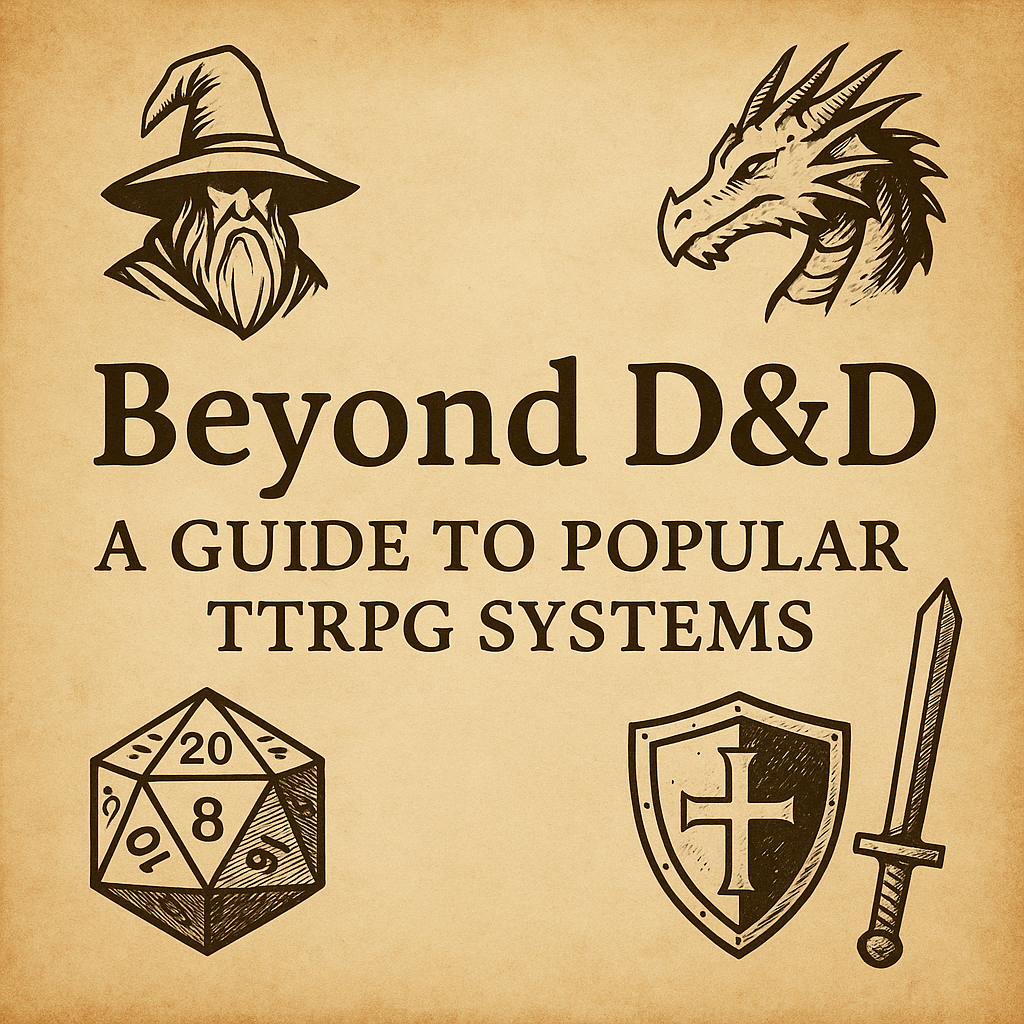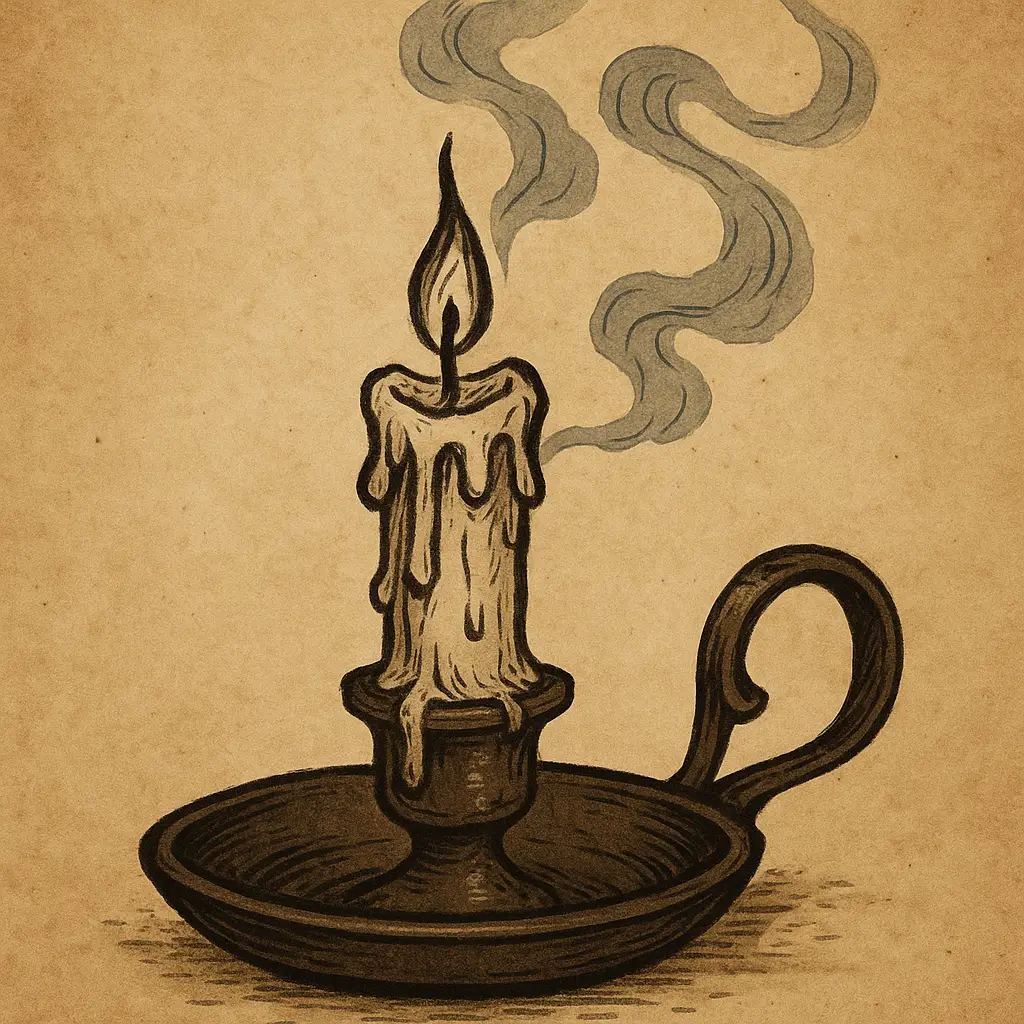The world of tabletop role-playing games is more expansive than ever before. While Dungeons & Dragons may remain the best-known system globally, it is far from the only path available to brave adventurers and curious game masters.
Whether you’re yearning for political intrigue among vampires, delving into the cosmic horror of ancient gods, or plotting heists in a haunted industrial city, there is a system built for your story. This guide explores the most notable tabletop RPGs beyond D&D, offering a detailed look at what makes each one unique, how they play, and why you might want to bring them to your table.
🧙 Pathfinder (Second Edition)
Genre: High Fantasy
Publisher: Paizo
System Style: d20-based, tactical combat, high customization
Pathfinder began as a fork of D&D 3.5e and quickly grew into a system with its own voice. Its second edition (often called PF2e) refines and modernizes the rules without sacrificing the tactical depth or crunchy complexity that fans love.
The system features a streamlined three-action economy that allows players to decide how best to spend their turn—move three times, attack twice and raise a shield, or mix and match. The character customization is incredibly rich, with ancestries, backgrounds, classes, and feats that offer layers of mechanical flavor.
Pathfinder appeals to players who want to deeply customize their characters, enjoy tactical grid-based combat, and explore structured, balanced rules in a robust fantasy setting.
🕵️ Call of Cthulhu
Genre: Cosmic Horror, Investigation
Publisher: Chaosium
System Style: d100 (percentile-based), sanity mechanics, low combat
Based on the works of H.P. Lovecraft, Call of Cthulhu is a masterclass in psychological tension and creeping dread. Instead of high fantasy heroism, players take on the roles of ordinary people—detectives, scholars, or journalists—uncovering unspeakable truths.
The mechanics focus on percentile rolls to determine skill success, but the standout feature is the Sanity system. As characters delve deeper into occult knowledge and monstrous encounters, their minds begin to unravel.
Combat is dangerous and discouraged; you’re far more likely to run from a Deep One than fight it. Call of Cthulhu is ideal for players who enjoy suspense, subtle roleplay, and slow-building narratives with a deep sense of doom.
🧛 Vampire: The Masquerade
Genre: Gothic Horror, Urban Fantasy
Publisher: White Wolf / Paradox Interactive
System Style: Dice pool (Storyteller System), narrative-driven
Vampire: The Masquerade invites players into a modern world cloaked in shadows, where ancient vampire clans manipulate politics, territory, and tradition behind a veil of secrecy. This game is all about social maneuvering, moral choices, and the balance between beast and humanity.
Characters are defined by their clan, discipline powers, and personal convictions. The mechanics use a pool of ten-sided dice to resolve actions, and the emphasis is less on numbers and more on narrative outcomes.
What makes Vampire unique is its focus on interpersonal drama, political plotting, and personal horror. It’s not about dungeons or dragons—it’s about guilt, ambition, and survival in a world of blood and secrets.
⚙️ Blades in the Dark
Genre: Crime, Steampunk, Supernatural
Publisher: Evil Hat Productions
System Style: Forged in the Dark, crew-based storytelling
Set in a haunted, post-industrial fantasy city where the sun never rises and ghosts linger in the streets, Blades in the Dark casts players as members of a criminal crew. You’re smugglers, assassins, or cultists carving out territory and power while dealing with rival factions and supernatural threats.
The mechanics are narrative-forward, using six-sided dice and innovative tools like flashbacks (to retroactively prepare for heists), clocks (to track long-term events), and stress (a resource that powers abilities but leads to burnout).
Blades in the Dark is perfect for players who love emergent storytelling, heists, and tight, gritty narrative tension. Its focus on collaborative world-building and faction influence makes every campaign feel alive.
🤖 Shadowrun (Sixth World)
Genre: Cyberpunk Fantasy
Publisher: Catalyst Game Labs
System Style: d6 dice pools, detailed systems for hacking, combat, and magic
Shadowrun merges dystopian cyberpunk with urban fantasy—think elves with cybernetic arms, orcs working for megacorporations, and shamans hacking into the Matrix. It’s a bold and complex system where magic and technology collide in a gritty future Earth.
Players take on roles such as street samurai, deckers (hackers), riggers (drone controllers), and mages. The gameplay is robust and tactical, with mechanics for hacking, astral projection, matrix combat, and more.
Shadowrun is not beginner-friendly, but it’s an incredibly rewarding system for players who enjoy detailed rulesets and a unique, hybrid setting. Campaigns often center around corporate espionage, resistance, and survival in a world of profit-driven cruelty.
🌌 Starfinder
Genre: Science Fantasy
Publisher: Paizo
System Style: d20-based, derived from Pathfinder
Starfinder takes the framework of Pathfinder and launches it into space. Think traditional fantasy classes like mystics and technomancers, but with starship combat, alien races, and intergalactic politics.
Combat mechanics and character building will feel familiar to anyone who’s played D&D or Pathfinder, but Starfinder adds layers like spaceship customization, planetary exploration, and new equipment systems.
It’s an ideal system for players who want the crunch of d20 mechanics but are itching to explore a universe filled with android monks, insectoid diplomats, and sentient gas clouds.
⚔️ Warhammer Fantasy Roleplay (4th Edition)
Genre: Grimdark Fantasy
Publisher: Cubicle 7
System Style: d100 percentile system, career-based advancement
Warhammer Fantasy Roleplay (WFRP) is a brutal, cynical vision of fantasy where your average adventurer is more likely to die of dysentery than heroically slay a dragon. The system focuses on common folk caught in the machinations of Chaos, empire politics, and plagues.
Characters often start as rat catchers or dockhands and climb through careers rather than levels. Combat is dangerous, disease is rampant, and the tone is unapologetically bleak. But therein lies the fun—every success feels earned.
WFRP is ideal for players who enjoy low-powered campaigns, character-driven narratives, and a setting where the gods are cruel and the dice even crueler.
🎭 Fate Core System
Genre: Universal
Publisher: Evil Hat Productions
System Style: Narrative, aspect-based, uses special “Fate dice”
Fate is a rules-light, story-heavy system that can handle nearly any genre you throw at it. Rather than focusing on stats and damage output, it leans into “aspects”—short phrases that describe your character’s strengths, flaws, and motivations.
Resolution is handled using Fate dice, which have three symbols: plus, minus, and blank. Success depends not just on skill, but on invoking aspects and spending Fate Points to influence outcomes.
Fate shines in groups that care more about storytelling and less about simulation. It’s flexible, fast, and encourages players to actively shape the world around them with collaborative input.
🧠 GURPS (Generic Universal RolePlaying System)
Genre: Universal
Publisher: Steve Jackson Games
System Style: Point-buy, realism-heavy, extremely modular
GURPS is perhaps the most well-known universal system ever created. Short for “Generic Universal RolePlaying System,” GURPS allows players and GMs to build characters and settings for any genre—from ancient Rome to far-future cyberpunk to realistic modern drama.
Every mechanic in GURPS aims to be grounded in realism, with detailed rules for injury, fatigue, and skill resolution. Character creation uses a point-buy system, and optional rules allow for fine-tuned simulation.
GURPS is best for simulationists, worldbuilders, and players who love number-crunching. It’s powerful, versatile, and can be molded to suit any vision.
🎲 Fiasco
Genre: Crime, Tragedy, Black Comedy
Publisher: Bully Pulpit Games
System Style: GM-less, scene-based, improvisational
Fiasco is a brilliant and minimalist RPG inspired by movies like Fargo and Burn After Reading. There are no dice rolls for success or failure—just storytelling, scene resolution, and the spiraling consequences of bad decisions.
Players collaboratively build a scenario and relationships. Each scene builds tension, introduces complications, and pushes characters toward ruin. At the end, a tilt mechanic ensures everything falls apart in spectacular, hilarious, or tragic fashion.
Fiasco is a great one-shot game for groups that enjoy roleplay, chaos, and improvisation. It requires zero prep and excels at generating memorable, cinematic disasters.
🧭 Honorable Mentions
While not as globally popular as those above, these systems also deserve praise:
Savage Worlds – A fast-paced, pulpy system great for action-heavy stories and campaign conversions.
Dungeon World – A rules-light, narrative-focused fantasy system inspired by D&D but built on the Powered by the Apocalypse engine.
Mutants & Masterminds – The superhero RPG, blending point-buy customization with comic-book flavor.
Alien RPG – A terrifying survival-horror experience based on the Alien film franchise, complete with stress mechanics and brutal lethality.
🛡 Final Thoughts: Choosing the Right System for You
With so many tabletop RPGs on the market, choosing the right one can feel daunting. But the beauty of this medium is its sheer diversity. Want intricate, tactical combat? Pathfinder has you covered. Craving personal horror and moral ambiguity? Vampire: The Masquerade is calling. Need a universal toolkit for any genre? Fate or GURPS might be your best bet.
Ultimately, the best system is the one that helps your table tell the stories you care about most. Don’t be afraid to experiment, switch systems, or even combine mechanics from multiple games. The only real rule is this:
Play boldly. Tell good stories. And above all, enjoy the game.

